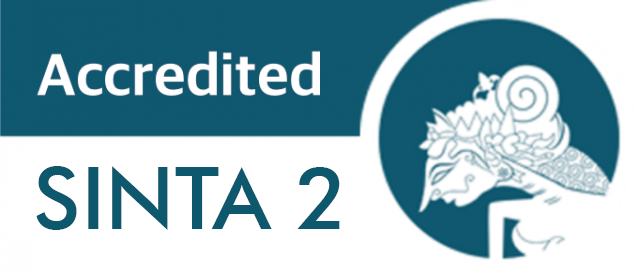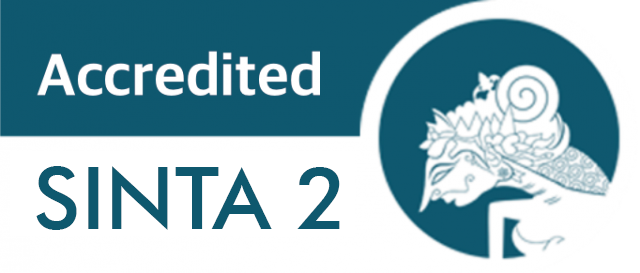Parental Alienation Syndrome (Focus on Management)
Downloads
Biro Pusat Statistik. Nikah, Talak dan Cerai, serta Rujuk, 2007–2016 [Internet]. 2019 [cited 2020 Apr 24]. Available from: https://www.bps.go.id/linkTableDinamis/view/id/893
Pengadilan Agama Surabaya. Laporan Keperkaraan - Pengadilan Agama Surabaya Klas 1A [Internet]. 2019 [cited 2020 Apr 24]. Available from: https://www.pa-surabaya.go.id/pages/laporan-keperkaraan
Lamminen L. Gottlieb, L. J: The Parental Alienation Syndrome: A Family Therapy and Collaborative Systems Approach to Amelioration. J Child Fam Stud [Internet]. 2013;22(6):879–80. Available from: https://doi.org/10.1007/s10826-012-9679-9
Bernet W, Baker AJL. Parental alienation, DSM-5, and ICD-11: Response to critics. J Am Acad Psychiatry Law. 2013;41(1):98–104.
Hidalgo Vicario MH, Rodríguez Hernández PR. DSM-5. manual diagnóstico y estadístico de los trastornos mentales. últimas novedades. Vol. 17, Pediatria Integral. 2013. 461–462 p.
Templer K, Matthewson M, Haines J, Cox G. Recommendations for best practice in response to parental alienation: findings from a systematic review. J Fam Ther. 2017;39(1):103–22.
Verrocchio MC, Marchetti D, Carrozzino D, Compare A, Fulcheri M. Depression and quality of life in adults perceiving exposure to parental alienation behaviors. Health Qual Life Outcomes. 2019;17(1):1–9.
Clemente M, Padilla-Racero D. When courts accept what science rejects: Custody issues concerning the alleged "parental alienation syndrome.” J Child Custody [Internet]. 2016;13(2–3):126–33. Available from: http://dx.doi.org/10.1080/15379418.2016.1219245
Johnston JR, Walters MG, Friedlander S. Therapeutic Work With Alienated Children and Their Families. Fam Court Rev. 2005;39(3):316–33.
Sadock BJ, Sadock VA, Ruiz P. Kaplan & Sadock's synopsis of psychiatry : behavioral sciences/clinical psychiatry. eleventh. Philadelphia: Wolters Kluwer; 2015.
Darnall DC. A Construct Study of the Eight Symptoms of Severe Parental Alienation Syndrome : A Survey of Parental Experiences. 47:55–75.
Warshak RA. Parental Alienation: Overview, Management, Intervention, and Practice Tips. J Am Acad Matrim Lawyers. 2015;28:181–248.
Kruk E. Parental Alienation as a Form of Emotional Child Abuse: Current State of Knowledge and Future Directions for Research. Fam Sci Rev. 2018;22(4):141–64.
Mercer J. Examining Parental Alienation Treatments: Problems of Principles and Practices. Child Adolesc Soc Work J [Internet]. 2019;36(4):351–63. Available from: https://doi.org/10.1007/s10560-019-00625-8
Reay KM. Family Reflections: A Promising Therapeutic Program Designed to Treat Severely Alienated Children and Their Family System. Am J Fam Ther. 2015;43(2):197–207.
Smith LS. Family-Based Therapy for Parent-Child Reunification. J Clin Psychol. 2016;72(5):498–512.
Sullivan MJ, Ward PA, Deutsch RM. Overcoming Barriers Family Camp:a Program for High-Conflict Divorced Families Where a Child 1 Is Resisting Contact With a Parent . Fam Court Rev. 2010;48(1):116–35.
Toren P, Bregman BL, Zohar-Reich E, Ben-Amitay G, Wolmer L, Laor N. Sixteen-Session Group Treatment for Children and Adolescents With Parental Alienation and Their Parents. Am J Fam Ther. 2013;41(3):187–97.
Walters MG, Friedlander S. When a Child Rejects a Parent: Working With the Intractable Resist/Refuse Dynamic. Fam Court Rev. 2016;54(3):424–45.
Judge, A. M. & Deutsch RM. Overcoming Parent-Child Contact Problems: Family-Based Interventions for Resistance, Rejection, and Alienation. United Kingdom: Oxford University Press; 2017.
Warshak RA. Reclaiming Parent–Child Relationships: Outcomes of Family Bridges with Alienated Children. J Divorce Remarriage [Internet]. 2019;60(8):645–67. Available from: https://doi.org/10.1080/10502556.2018.1529505
Warshak RA. Family Bridges: Using Insights From Social Science To Reconnect Parents and Alienated Children*. Fam Court Rev. 2010;48(1):48–80.
Copyright (c) 2019 Rina Krismiati Gani, Royke Tony Kalalo

This work is licensed under a Creative Commons Attribution-ShareAlike 4.0 International License.
1. Copyright of this journal is possession of the Author, by the knowledge of the Editorial Board and Journal Manager, while the moral right of the publication belongs to the author.
2. The journal allows the author(s) to retain publishing rights without restrictions.
3. The articles are published under a Creative Commons Attribution Share-Alike (CC BY-SA) license. Many research funding bodies prefer the CC BY-SA license because it allows for maximum dissemination and re-use of open access materials. Users are free to share (copy, distribute, and transmit) and remix (adapt) the contribution under this license, including for commercial purposes, as long as they attribute the contribution in the manner specified by the author or licensor.




























